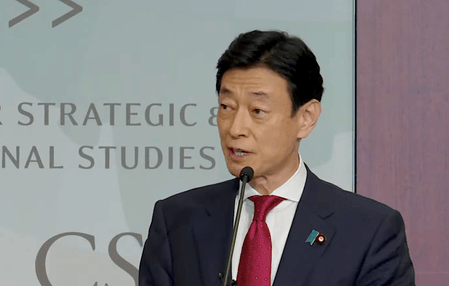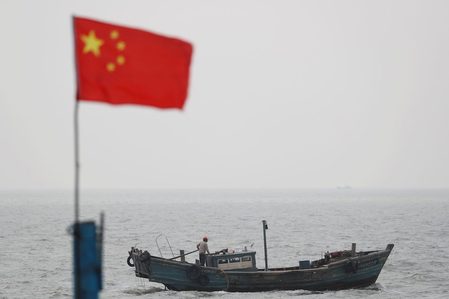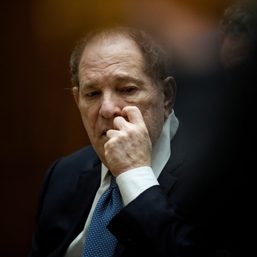SUMMARY
This is AI generated summarization, which may have errors. For context, always refer to the full article.
![[ANALYSIS] China’s strategy to dislodge the US](https://www.rappler.com/tachyon/2024/03/China-grand-strategy-dislodge-united-states-March-1-2024.jpg)
“Our time has come” is the repeated mantra in Beijing these days. The Chinese Communist Party believes that American decadence, the rebirth of authoritarianism in the world, and today’s technological developments, are working in its favor to effectively challenge American hegemony.
For decades since the Party came into power, China had maintained a strategic defensive stance vis-à-vis western dominance. Then in the early ’70s, it began to rise with the help of the United States, which made China its most favored trading partner. The consistent growth of the Chinese economy since then fueled its advancement into the strategic stalemate with Washington.
Since 2012, Xi Jinping has led China in its strategic offensive quest to dislodge American hegemony in the world. All the signs of an emergent state out to challenge the leading state are possessed by China: a strong economy, a powerful People’s Liberation Army, and a determined political leadership.
The world today has been seeing a resurgence in authoritarianism. China sees this phenomenon as evident decline of the democratic liberal order championed by the US. Once strong democracies are turning into authoritarian hybrids like India which used to be the largest democracy. Even the United States, which is the leader of the order, appears to be evenly divided between left-centrists and ultra-rightists.
Supporting this worrying trend is a recent report by Nature Reviews (2023) citing that “at the end of 2021, just 20.3% of humanity lived in a ‘free’ nation, marking the 16th consecutive annual global decline in citizens’ political rights and civil liberties. The resurgence of authoritarianism implicated in this trend underlies some of the most divisive moments in recent history, including Donald Trump’s successful 2016 US presidential election bid, the UK’s withdrawal from the European Union, and the rebirth of far-right political parties in Western Europe. The re-emergence of authoritarianism in the general public weakens democratic institutions and sows societal division by fostering out-group hostility. Thus, authoritarian impulses threaten people’s personal freedoms, as well as the democratic foundations upon which these rights are enshrined.”
A world divided between a “free world” and varied forms of authoritarianism favors China as its leader. The Chinese Communist Party sees this significant development and has seized the day. It has therefore been emboldened to be more assertive internationally.
No longer an outsider
China has long ceased being an outsider in world affairs and has now engaged the world in every possible way. Its voice can now be heard in almost any significant multilateral institution, beginning with the United Nations. China resurrected the moribund Conference on Interaction and Confidence-Building Measures in Asia (CICA) in the borders of Europe and Asia. China has put up its own international bank, the Asian Infrastructure Investment Bank, astride the World Bank – International Monetary Fund.
Challenging the western model of spreading influence and accessing remote markets, China has deployed its Belt and Road Initiative through countries along the South Asia and East Africa corridors. These economic and political deployments now have their military value as well.
China has upgraded its sea strategy to sea control. Where it once merely invested in defensive sea denial arsenal, China is now poised to deploy its aircraft carrier convoys. It has sought the capability to hold distant islands, safeguard sea lanes, intervene in neighboring countries, and provide public security goods. China stepped up investments in aircraft carriers, capable surface vessels, amphibious warfare, marines, and overseas bases.
China’s perceptions of US power and threat as well as its own growing power have guided the development of Chinese grand strategy to what it has become over the years. According to Rush Doshi, China’s first strategy of displacement or strategic defensive (before 1989-2008) was to quietly blunt American power over China, particularly in Asia, and it emerged after the key events of Tiananmen Square, the Gulf War, and the Soviet collapse led the CCP to sharply increase its perception of US threat.
China’s second strategy of displacement or strategic stalemate (2008-2016) sought to build the foundation for regional hegemony in Asia, and it was launched after the Global Financial Crisis led the CCP to see US power as weakened and encouraged it to take a more aggressive course of action. Now, with the occurrence of “great changes unseen in a century,” the CCP has launched its third strategy of displacement or strategic offensive that expands its blunting and building efforts globally to displace the United States as world leader.
War a matter of time?
There is no room for doubt as to the global ambitions of China. There could be war in the near future if resulting clashes between these two powerful orders are not contained. Already, it seems an impossibility to see two world orders existing side by side.
The onset of radical technologies interconnecting all spheres of life on the planet has practically dissipated all possibilities of isolation. A US 4-star general has said that war over Taiwan between the United States and China is merely a matter of time and could occur next year.
But before any shooting war can happen, there is still much that can be done by the US to prevent direct military confrontation with China that could provoke World War III. For one, the same asymmetric strategy can be wielded by the United States against China. Exploit China’s weaknesses using American strengths. China’s imperialism in the digital age must be countered. US-NATO relations must be further strengthened.
The world’s democracies must protect democratic systems. They must come together and prepare for a possible war with China and her allies over Taiwan or other democratic enclaves like the Philippines. – Rappler.com
Dencio Severo Acop is a retired colonel of the Philippine Army who served for close to 30 years. A member of West Point’s Class of 1983, he is a decorated soldier-scholar winning the Distinguished Conduct and Service Stars and the Presidential Medal of Merit. The author is a certified protection professional, volunteer leader, published author, seasoned academic, and longtime public servant.
1 comment
How does this make you feel?






![[OPINION] Expectations for Philippines-US-Japan trilateral cooperation: A view from Japan](https://www.rappler.com/tachyon/2024/04/tl-ph-usa-jp-cooperation.jpg?resize=257%2C257&crop=447px%2C0px%2C1080px%2C1080px)





Thanks to Ret. Col. Dencio Severo Acop for his inspiring ideas. These ideas are not easily accessible to civilian Filipinos, who comprise most of the Filipino People. And as always in any war – it is the civilians who will suffer the greatest.